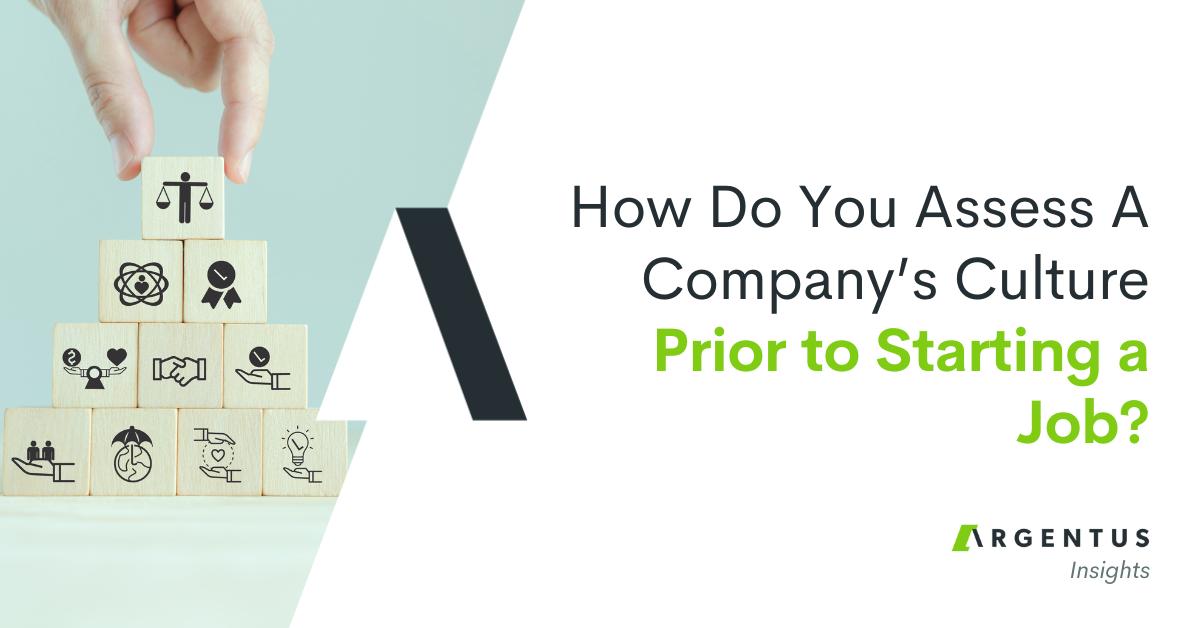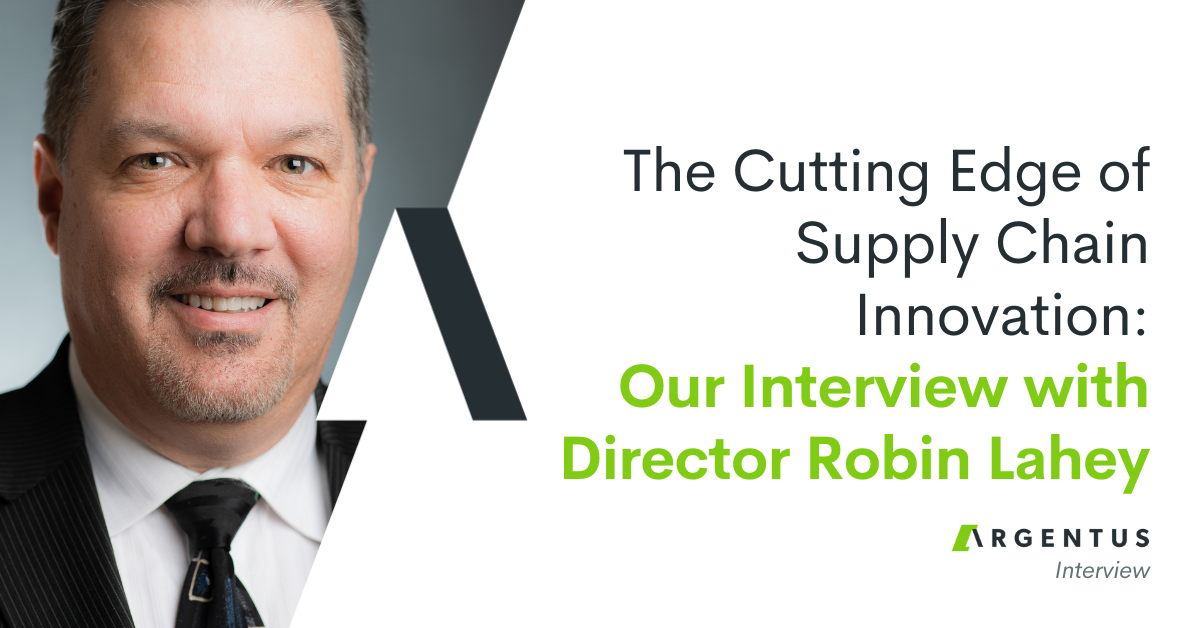
Welcome to the latest instalment of Argentus’ executive interview series, where we speak with leading lights from across the Supply Chain and Procurement field in Canada. In these interviews, we seek to highlight the field’s thought leaders – people with all-star experience, on the forefront of Supply Chain’s evolution.
Today, we were thrilled to speak with Jill Button.

 Jill is a true leader in Canada’s Procurement field, with an extensive background leading Strategic Sourcing for companies including Rogers, Shaw Communications, and IBM – with a particular focus on IT Procurement. She is the CEO of ProcurePro Consulting, a boutique consulting firm providing procurement and project management professionals to transform organizations with a specialization in sourcing, contracting and implementing technology solutions. In 2019, she was named one of Supply Chain Canada’s 100 Influential Women in Supply Chain™, in recognition of her immense contributions to the field and this year is nominated for an RBC Canadian Women Entrepreneur Award.
Jill is a true leader in Canada’s Procurement field, with an extensive background leading Strategic Sourcing for companies including Rogers, Shaw Communications, and IBM – with a particular focus on IT Procurement. She is the CEO of ProcurePro Consulting, a boutique consulting firm providing procurement and project management professionals to transform organizations with a specialization in sourcing, contracting and implementing technology solutions. In 2019, she was named one of Supply Chain Canada’s 100 Influential Women in Supply Chain™, in recognition of her immense contributions to the field and this year is nominated for an RBC Canadian Women Entrepreneur Award.
This one is a long time coming. We’ve worked with Jill for many years as both a candidate and a client, so we couldn’t be more excited to finally share her perspective with our readers.
We spoke about:
- What led Jill to found ProcurePro after a storied Procurement career with large companies,
- Whether the COVID-19 crisis represents a watershed moment for Supply Chain, and
- Her approach to transforming Procurement functions at organizations to make them more strategic, more responsive, and more resilient.
We hope you enjoy the interview!
Thanks for taking the time to do this interview, Jill! You’ve been in the Argentus orbit for well over a decade as both a candidate and client. For our readers who might not be familiar with your work: how would you describe ProcurePro, and how fits into the world of Procurement? What originally motivated you to make the switch to found your own consultancy to enact strategic Procurement initiatives?
I’ve definitely been in the orbit with Argentus for quite a number of years! I’ve been placed full time, and I’ve also used Argentus extensively when I was at a number of corporations as a recruitment resource. Having that relationship has been really great as my organization has grown.
I decided to leap off the corporate ladder about seven years ago. The reason why I did is I found that a lot of organizations who are small and medium (SME) don’t have access to the same Supply Chain and Procurement services that major large corporations have access to. I’ve always had an entrepreneurial spirit that I hadn’t been able to fully pursue in my previous roles. I always wanted to run my own business, and I’m very passionate about Supply Chain and Procurement. I’d reached a certain stage in my career where I had attained a lot of goals, and I felt it was time to take that leap, control my destiny, and become my own boss.
ProcurePro originally started out as a Procurement organization helping clients run RFPs, and I found my clients were the ones who were looking for a little bit more. They wanted assistance not just with sourcing of technology, (software in particular), which happens to be my expertise, but they wanted people who could oversee the implementation as well. That helped us expand ProcurePro to include project management, and more transformative projects, where we weren’t just doing the sourcing, but also complex implementations. It’s been wonderful to have clients who have given me that feedback, trusted us and helped grow our business exponentially.
As everyone knows, we’re in a highly uncertain moment. Many companies have had to shift priorities to deal with the immediate impacts of COVID-19 and put some longer-term projects on hold. But we’re also seeing wider recognition of just how important Procurement and Supply Chain functions are, across industries. You hear people outside the industry talking about Supply Chains in casual conversation, maybe for the first time!
Do you think this is a watershed moment for Procurement and Supply Chain? Do you see demand for these competencies going up in organizations, and what do you think are the major needs?
Absolutely. It’s definitely a watershed moment. When you have the Prime Minister of your country, Premier of your province, Mayors and other leaders talking about the criticality of Supply Chain and Procurement, that’s definitely evidence of a greater understanding than there was before. Before, people would ask me what I did in my career, and they didn’t always understand what I meant when I said Supply Chain or Procurement. Now they do.
COVID-19, and the focus on essential services, has really brought home to average people the understanding of how Supply Chain actually works, and how critical it is. People are beginning to understand how goods and services are delivered to them, how PPE and other healthcare products are so vital, and how they’re sourced. People are beginning to understand the risks and fragility of a supply chain and not having a sound Procurement practice. I think, as a field, we need to step up and embrace this moment.
I believe this awareness is growing at the executive level too. Maybe with the exception of Finance and IT, no other function has the visibility within a company that Procurement does.
I do see demand going up. Organizations are now taking a much more rigorous look at their Supply Chain, and how their businesses run. Beyond essential goods and services, people have started to see major impacts on their businesses – for example with sourcing from global locations. They’re starting to see how those decisions can pose a significant risk for their businesses.
I’ve had the opportunity to talk to clients about how this has impacted them, and many are telling me that their shipments of non-PPE equipment are impacted. From a services perspective, it’s the same. For example, our agriculture sector relies on foreign workers for planting and harvesting. IT, if they outsource their services, relies heavily on people outside Canada for things like application development, and those projects require travel. With travel restrictions, no one is able to fly, which impacts those projects. There are massive Logistics constraints as well.
I think, across the board, people are taking Supply Chain and Procurement more seriously. They realize that Supply Chain and Procurement people have vital skills that can help them understand, and mitigate, these risks across their business.
In your career, you’ve done a number of major transformations. Could you walk us through your major strategic considerations when you begin one of these transformations – respecting, of course, that every project is unique? Are there any big projects you’ve done that you think are especially relevant to the new needs organizations have right now?
As you said, I’ve done many large-scale projects and transformations. It’s a fascinating area – whether it’s helping small or medium organizations, or larger organizations where the Procurement has become unwieldy.
I always start with an approach that looks at people, processes and systems. Those are the three key elements. When I look at the people component, I ask: what is the structure? What resources do we have? What roles do we have, and how do they interact and support the rest of the organization? What are the job descriptions and levels of experience that we’re looking for? What’s the engagement model?
For processes, I ask: what processes are already in place? Which of these processes are creating bottlenecks, or are overly cumbersome to the internal business partners who are using the Procurement organization for procuring goods and services?
Finally, I look at the systems. Digital transformation across the supply chain, across organizations, implementing ERP systems, is something that we specialize in. I’ll look at, what are the existing systems? Are they fully integrated? Is there a clear understanding of the communications from the time that an internal stakeholder identifies a requirement, through to the implementation of that contract and supplier, and all the touch points along the way?
I map out those three factors. I identify the best practices that might be missing, make recommendations, and plan out a transformation road map that focuses on those three things. What are the top priorities that will have the quickest impact, and how does that look over a 2-5 year plan? Finally I help them implement the recommendations to ensure they are practical, applicable and sustainable.
That’s a high-level overview of the methodology that we use. We’ve done a number of exciting transformations. For example, we worked with Argentus who helped us staff a Procurement organization where they were following public Procurement practices, and needed to hire individuals with experience in category management and strategic sourcing. That’s something that Argentus worked very closely with helping to resource.
That’s our overall approach, and it’s wonderful when I can bring in a company like Argentus who can help organizations from a recruiting perspective, to contribute to that transformation.
A big thank you to Jill Button for taking the time to share her expertise with Argentus’ readers – and for the kind words!
Stay tuned for our follow-up, where we’ll discuss the advantages of using a consultant model for transformation, as well as Jill’s efforts at thought leadership to advance the Supply Chain and Procurement profession in Canada. ![]()




0 Comments